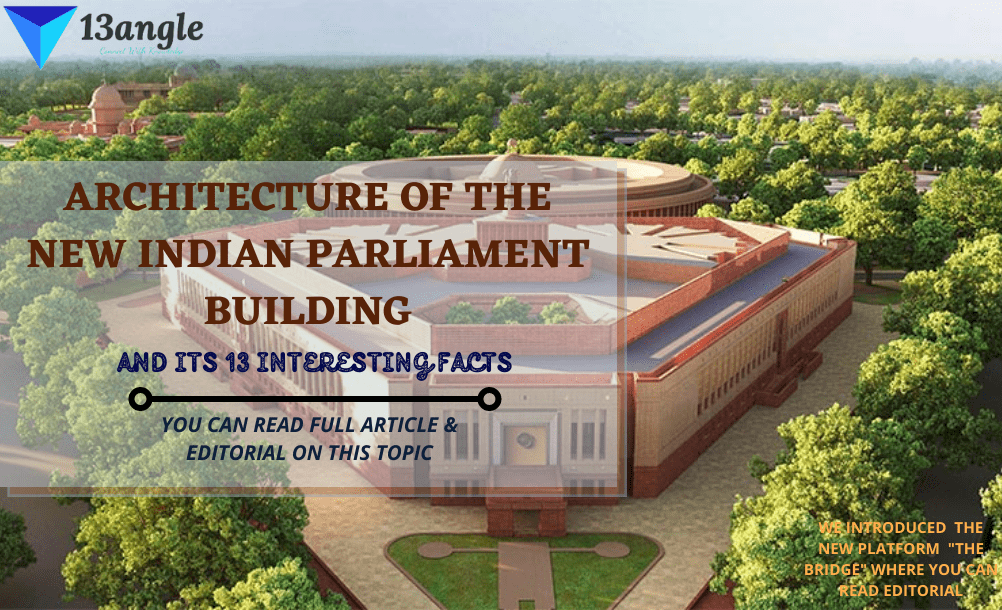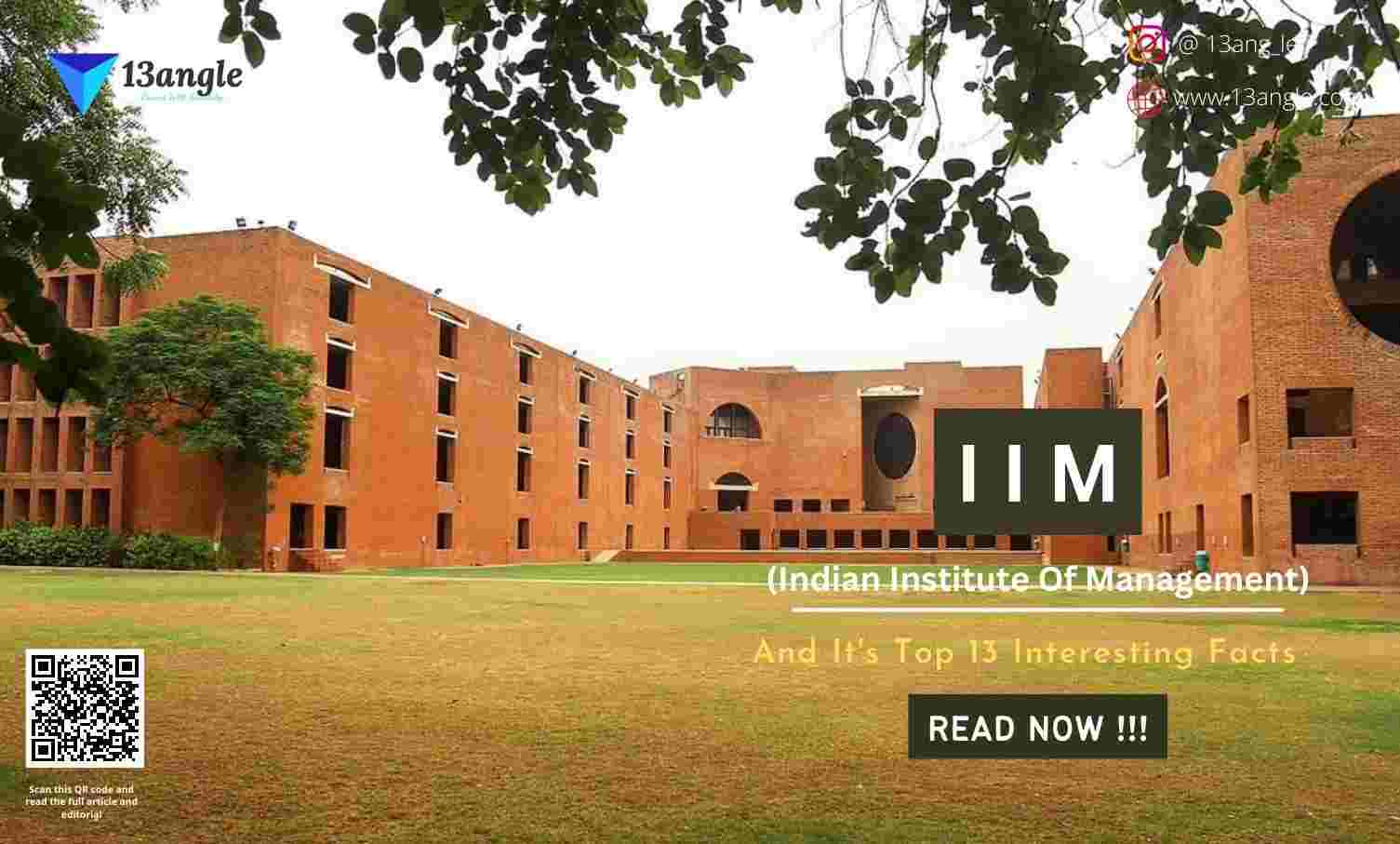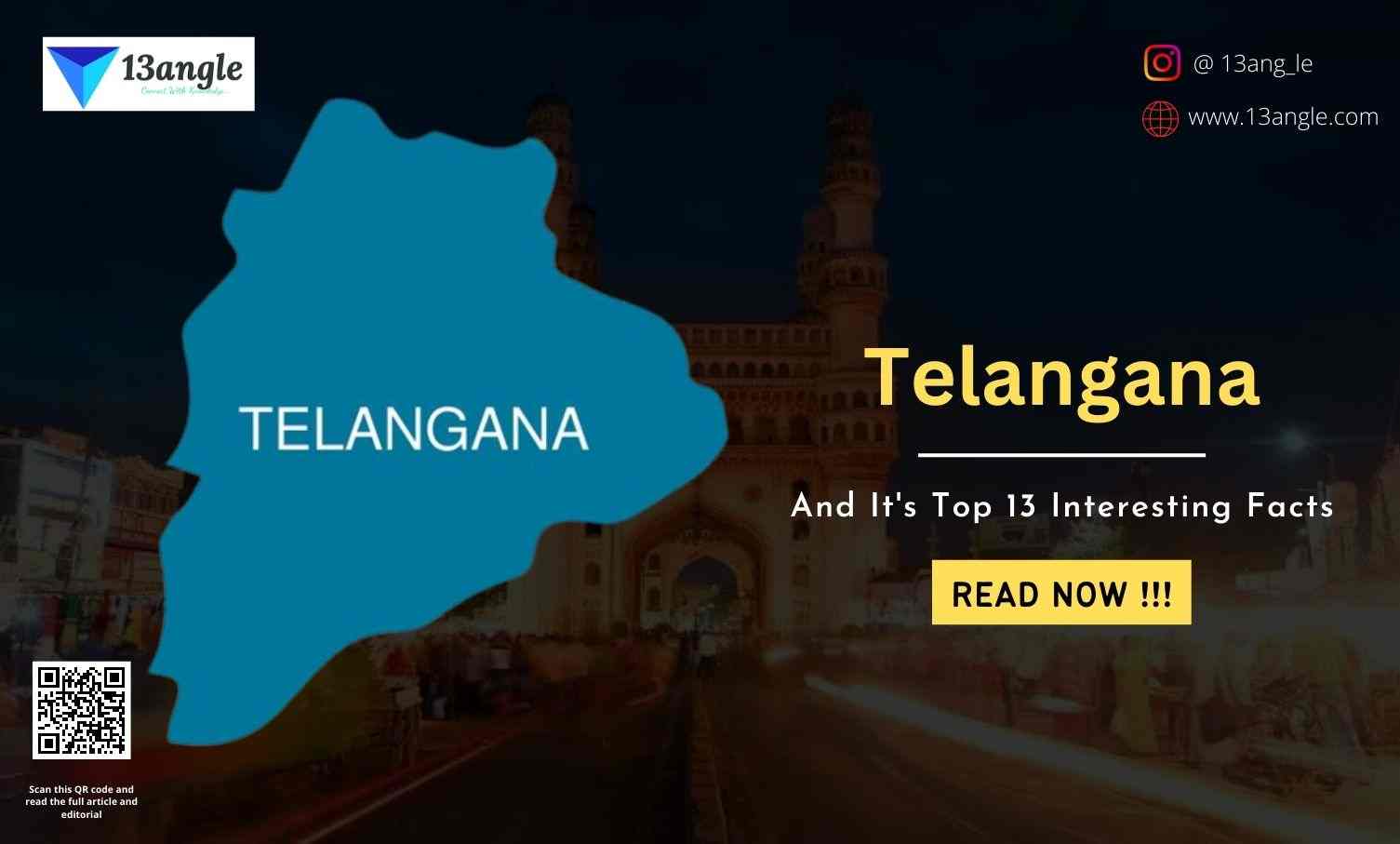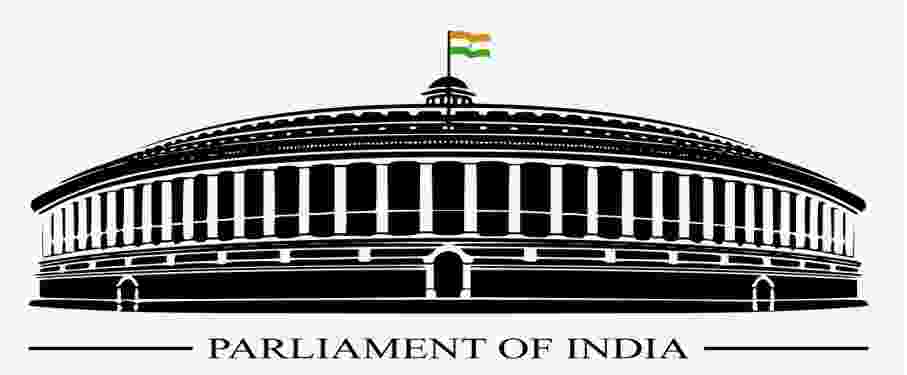
The Parliament of the country is the repository of the sovereign will of the people, and its successful functioning is a joint responsibility of both the government and the Opposition.
– Pratibha Patil
Background Of Parliament
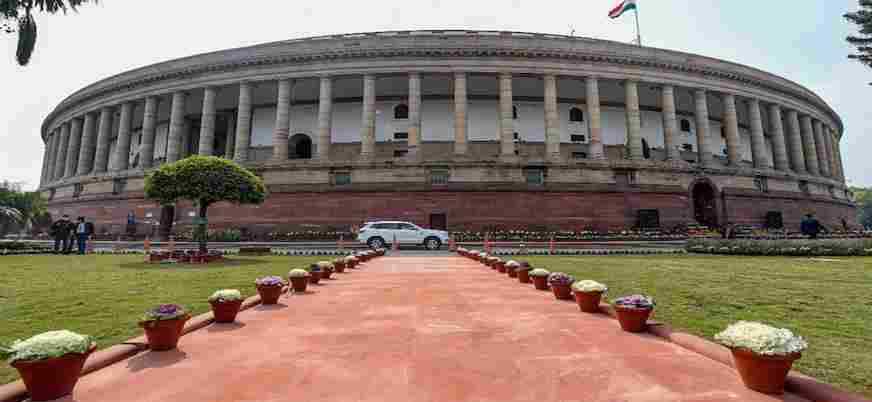
- Every democratic country in the world has a functioning Parliament to handle a multitude of affairs for efficient working of the country. A Parliament gives the public of the country voice and ensures transparency in the governing functions. The only exceptions are the countries with the total absence of any democratic norms resulting in the suspension of civil rights and being finally turned into a dictatorship. For every person, it is necessary to understand the functions of parliament in a country, especially if they live in a democratic one.
Parliament can be understood as the apex legislative body of the country. In the modern era of politics, a Parliament does not merely have symbolic functions. It is a full-fledged legislative body of the government. A Parliament includes public representatives who work toward their parliament in any Nation-state as broad functions. Monitoring govt functions are a few of the fundamental functions of parliament in a way parliament is an all-encompassing institution as it overlooks the policy formulation and implementation as well as international relations down to the basic functioning fibber of the country.
In Indian political 3 classical organs of govt are the executive generally associated with the regions of the state and the judiciary with the guardianship of the Constitution. The Parliament is the ultimate custodian of the popular will in the evolution of the government as the will of the people needed to be expressed beyond the direct popular action at the local level. The Parliament emerged as the supreme political institution of representation and legitimacy.
Component Of Parliament
1. Parliament:-
The Parliament more than any other organs of the government can claim to be the direct institutional expression of “we the people of India”.
The structure of the Parliament is based on the following notion of representation:
- It represents the nation’s people
- Represent different interest classes
- It represents the federation and regional states
The British Parliament in reality fulfills at least two representative functions, it represents the commons and the lords. The Indian Parliament represents the people of India and those of the constituent states forming the federation of the federal 2nd chamber of the Rajya Sabha. Besides representation Parliament is also a deliberative body that in fact underlies all the rest of the functions. It performs such as ventilating the grievances of the people, debating the major ques of the day, holding the govt accountable for its action and expenditure, and exercising the constituent power of amendment
The 1st Parliament of India elected in 1952 was a unique democratic institution in the sense that it was the first such legislative organ of the federal state that was elected on the basis of universal suffrage.
Lok Sabha
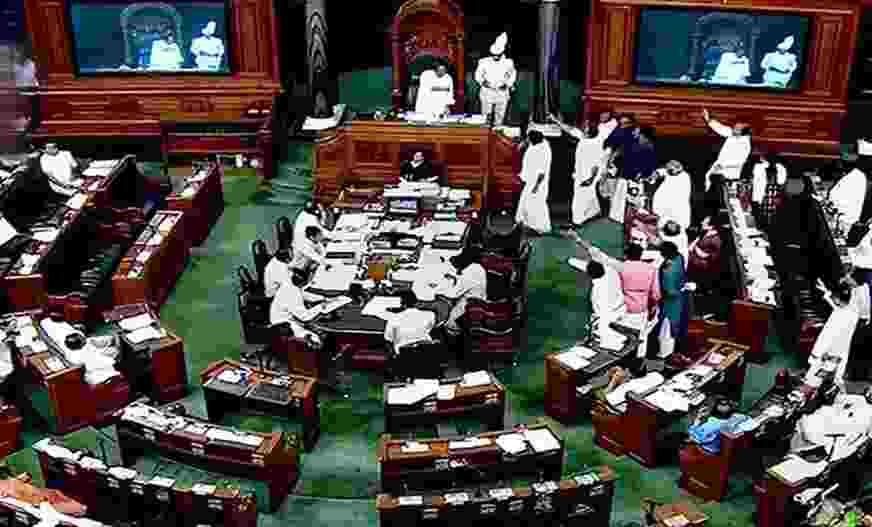
Composition Of Lok Sabha
- Lok Sabha is the lower house of parliament have an elected representative who represents the people of India. Lok Sabha is composed of representatives of the people chosen by direct election on the basis of adult suffrage. The maximum strength of Lok Sabha is 552 members of which 530 members are elected from States and 20 members from Union Territories representing state and union territories respectively and 2 members are nominated by the President from the Anglo-Indian Community but now this provision have been removed. The house meeting takes place at the Sansad Bhavan, New Delhi. A total of 131 seats (24.03%) are reserved for representatives of Scheduled Castes (84) and Scheduled Tribes (47). The state representation in Lok Sabha is based on the basis of population. UP have up to 80 members in the Lok Sabha, whereas smaller states like Mizoram, Nagaland, and Sikkim have only one representative each in Lok Sabha.
Powers And Functions Of Lok Sabha
Legislative Powers: The Lok Sabha house is responsible for the framing of Laws. As per the Constitution, the powers of the House of People and the Council of countries are equal in respect of the framing of laws but in practice, the Lok Sabha is more important.
It discusses the offer passed by the Rajya Sabha for junking of the Vice President and indictment of high court and supreme court judges.
Lok Sabha has greater say in the election of the President or the Vice-President. In case of Lok Sabha is dissolved, Rajya Sabha takes all responsibilities of the Union Legislature.
The no-Confidence motion is introduced and passed in the Lok Sabha only.
Money Bills can only be introduced in the Lok Sabha.
When both houses have a deadlock, a joint session of both houses is called and the will of the Lok Sabha prevails.
Officers Of Lok Sabha
Speaker and Deputy Speaker: The Lok Sabha has a Speaker and a Deputy Speaker. Both are elected from among their members in Lok Sabha by a simple majority of members present and voting in the House. The Speaker is considered the true guardian of the traditions of the administrative republic.
The Speaker is the presiding officer. In his absence, the meetings are presided by a Deputy Speaker. Both the Speaker and the Deputy Speaker can be removed from office by a resolution passed by the maturity of all members of the house present at the time.
Secretariat: An independent office of Lok Sabha which functions under the advice of the Speaker of Lok Sabha. The Lok Sabha Secretariat works under the guidance and supervision of the Speaker. The Secretariat of Lok Sabha was set up according to the vittles’ contained in Composition 98 of the Constitution.
Rajya Sabha
Composition of Rajya Sabha
The Rajya Sabha also called the Council of States, is the upper house of the bicameral Parliament of India.
The Rajya Sabha has 250 members, of which 238 are representatives of states and union territories and 12 are nominated by the president. These nominees are experts in their respective fields like literature, science and technology, art, and social work. The Rajya Sabha currently has 245 members. One-third of its members are removed after every two years and come new members. The tenure of the Rajya Sabha members is six years.
The Rajya Sabha’s representatives are elected by state legislative assemblies. Only three union territories (Delhi, Puducherry, Jammu, and Kashmir) have representation in Rajya Sabha.
The rationale behind the constitutional design of Rajya Sabha is summed up by the Sarkaria Commission in terms of:-
- Mature input in the legislative and constituent process from the more experienced person represented in Rajya Sabha.
- Representation to the viewpoint of the state represented there the seat allotted to each state range from 1 Arunachal Pradesh, Goa Manipur Meghalaya, Tripura, Pondicherry.
- Lending some degree of continuity of parliament working view of the fact that Rajya Sabha is a continuous chamber partially renew at the one third ever six years.
- Working with the Lok Sabha in a coordinated way with speedy resolution of conflict and deadlock in joint session.
Officers Of Rajya Sabha
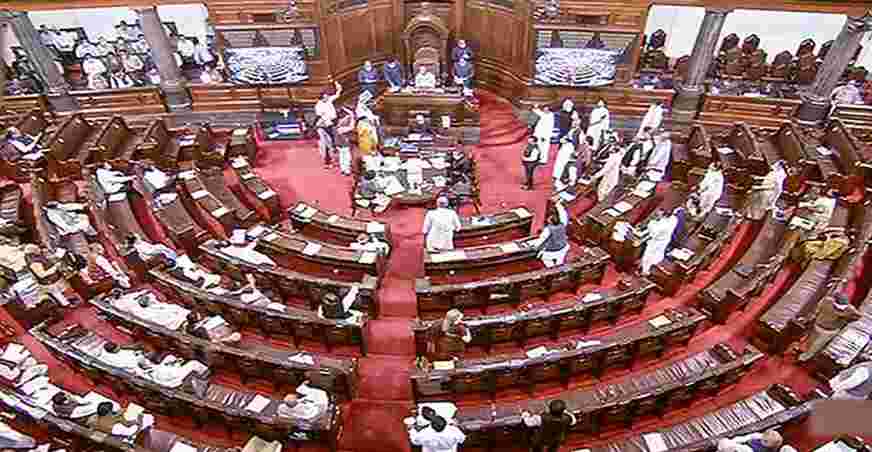
The Vice President is the Chairman of the Rajya Sabha, who presides over its sessions.
- The Deputy Chairman, who is elected from amongst the house’s members, are responsible for the daily works of the house in the absence of the Chairman.
- The present chairman of Rajya Sabha = Muppavarapu Venkaiah Naidu
- Present deputy chairman = Harivansh Narayan Singh
President
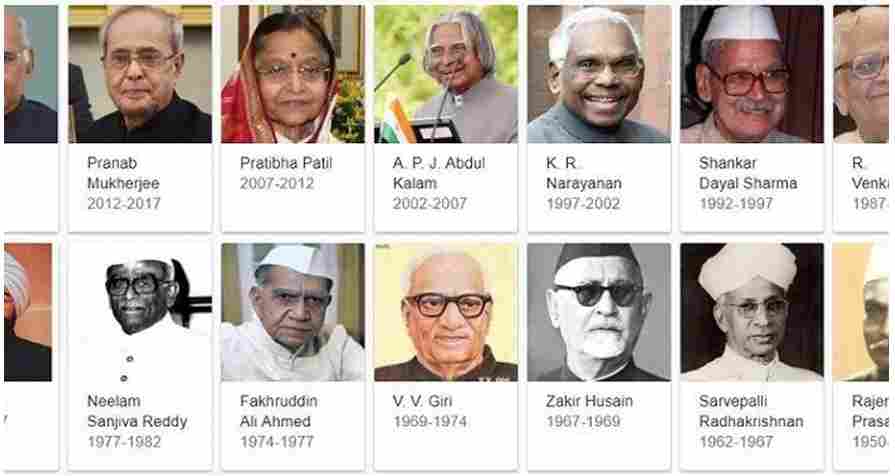
The President is the head of the state and is elected indirectly by an electoral college. The electoral college is responsible for President’s elections. It includes the following: –
- Lok Sabha
- Rajya Sabha
- Legislative Assemblies of the states
- Legislative Assemblies of the Union Territories (Delhi and Puducherry)
President holds office for five years. He holds the office even after the completion of five years if no new election has taken place or no new President has been elected.
Those qualifications of the President are:
- He must be an Indian Citizen.
- The minimum age limit for someone to be the President of India is 35 years.
- He should qualify the conditions to be elected as a member of the Lok Sabha.
- He should not hold any office of profit under the government.
- The basic and fundamental duty or responsibility of the president is to preserve, protect and defend the constitution and the law of India as made part of his oath. All his actions, decisions, and powers over the executive and legislative shall be utilized in accordance with the constitution.
Function Of Parliament
Major Functions Of The Parliamentary System:-
1. Legislative Functions
- Parliament makes laws on all subjects listed in the union list and it also makes laws in the concurrent list. In case there is any conflict and overlapping in the provisions existing in union and state. Union law prevails. In case when an emergency has been declared union can make the laws on the state list.
2. Financial Control
Union Parliament has exclusive powers to provide ways and means through which it can raise funds for public services.
To that end, it imposes taxes and also ensures that the money sanctioned for expenditure to various departments of the govt has been spent for the authorized purpose.
- The Parliament has two standing committees (the Public Accounts Committee and the Estimates Committee) that views government spending and prepares and submit report.
3. Providing and exercising control over Cabinet
Our parliamentary system blends the legislative and executive organs of states in as much as the executive power is wielded by a group of members of the legislature who command a majority.
To be more specific the govt functions through various ministers under the charge of diff. Ministers. The Parliament provides the ministers and holds them responsible to the elective representative of the people. The minister could be a member of either of the 2 houses of Parliament.
4. Critical assessment of the work of the Cabinet
- It is one of the most important functions of the Parliament to bring about discussion and critical assessment of the performance of the government departments. The debates ensure that the weaknesses in terms of performance are brought to light and the ministers and through them the entire executive machinery is kept on their toes.
5. Role of opposition
The opposition plays a very important role in check and balance and also ensures alternative points of view.
An organ of information Parliament is the most important powerful organ so far information about the functioning of the govt is concerned the information provided in the house is authoritative and ministers are bound to provide information on matters of govt when so desired by the members
6. Constitutional Functions
- The power to amend the Constitution is with the Parliament. Constitutional amendments have to be passed by each house by a majority of total members as well as 2/3rd members present in voting. In some cases, amendments need ratification from half of the legislative assembly of the state.
7. Judicial Functions
- Parliament has the power to impeach the president and remove the high court and supreme court judges. Parliament can also punish a person for defamation of the houses.
8. Electoral Functions
- The President and Vice President are elected with the help of the Parliament, by making elected members of both Houses part of electoral college that elects the President.
Parliament House
- Parliament House is a domed circular central hall with oak panelled walls and the three semi-circular buildings are used for the Rajya Sabha and Lok Sabha meetings. It was made by the British architect’s Sir Edwin Lutyens and Sir Herbert Baker in 1912-1913 in British India.
New Parliament House
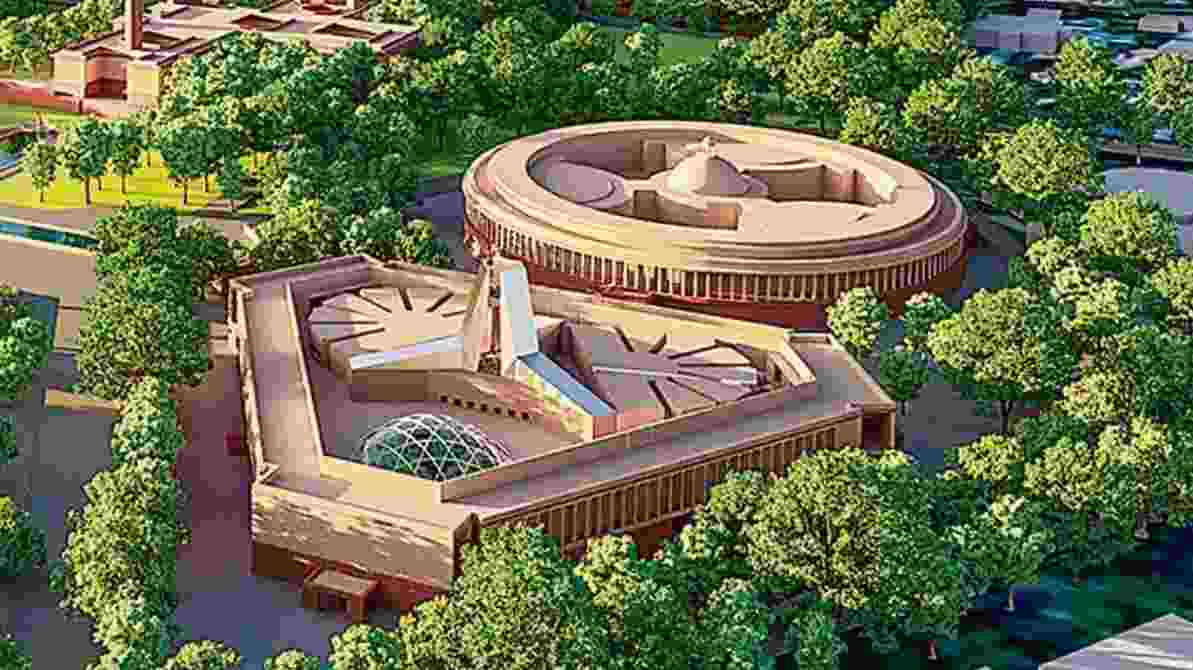
- The foundation stone for the new Parliament building was laid in December 2020 by Prime Minister Narendra Modi.
Top 13 Interesting Facts About Parliament
The Parliament building was made by Sir Edwin Lutyens and Sir Herbert Baker who were responsible for the overall construction and planning in Delhi during British time.
As per plans, the new parliamentary building would be a four-story structure with a seating capacity of 1,224 and cost Rs 970 crore.
The Parliament library is an important structure and the second-largest in India. Both the English and Hindi versions of the Constitution of India by the Constituent Assembly have been preserved in chambers within the library.
First Speaker of the Lok Sabha – G V Mavalankar
First Deputy Speaker of the Lok Sabha – Ananthasayanam Ayyangar
First Chairman of Rajya Sabha – Dr. S. Radhakrishnan.
The translated Sanskrit quotation at the entrance is as follows:
“Open the door to the people
And let us see thee
For obtaining of the sovereignty”.
From 14-15 August 1947, the transfer of power from the British to India came from the Central Hall of Parliament. The format of the Indian Constitution was also made and prepared in this hall.
The size of Lok Sabha and Rajya Sabha hall is shaped like a horse.
The perimeter of Parliament is 1 / 3rd of a mile i.e., 536.33m. The entire building has 12 doors and the main gate.
The area of Lok Sabha Hall is 446 square meters with around 550 seats for the members of Lok Sabha. The floor is covered with green color carpet in Lok Sabha. The members of the ruling party are seated on the right side, whereas opposition party members are seated on the left side of the Lok Sabha.
The red-colored carpet is covered on the floors of Rajya Sabha. There are around 250 seats arranged in the manner of Semi Circle.
There is a Parliament Museum in the Parliament Library building close to Sansad Bhavan.
Speaker of Lok Sabha – Sumitra Mahajan
Present Chairman of Rajya Sabha – Venkaiah Naidu
